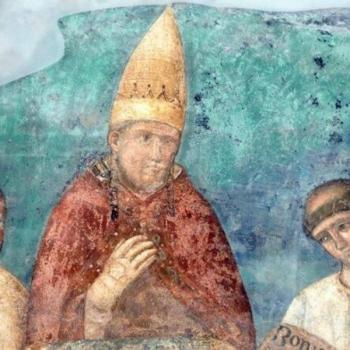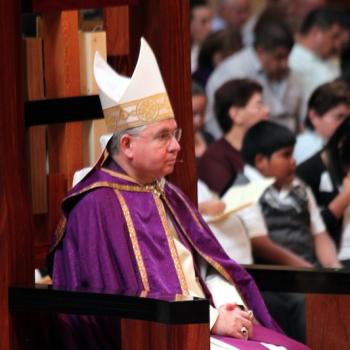I can safely say that everyone is aware that when Catholics and Protestants pray the Our Father together, there is always an awkward pause after “deliver us from evil.” Catholics want to say “amen” while Protestants want to say “For thine is the kingdom, and the power and the glory forever.”
Why the different custom and where did it come from?
Scripture contains two versions of the Our Father. In both cases it’s Jesus teaching his disciples how to pray. The first is in the Gospel of Matthew and it reads like this:
Our Father in heaven, hallowed be your name, your kingdom come, your will be done, on earth as in heaven. Give us today our daily bread; and forgive us our debts, as we forgive our debtors; and do not subject us to the final test, but deliver us from the evil one.
The second is in the Gospel of Saint Luke:
Father, hallowed be your name, your kingdom come. Give us each day our daily bread and forgive us our sins for we ourselves forgive everyone in debt to us, and do not subject us to the final test.
Interesting to note that “for thine is the kingdom, and the power and the glory forever” is not present. It’s not present in the original Greek either. That’s because this added doxology is not Scriptural. This last phrase of the Our Father comes from the Didache, an ancient Christian document written in the late 1st century. The Didache gives tremendous insight into the beliefs and practices of the earliest Christians. In it we read:
Do not pray like the hypocrites, but rather as the Lord commanded in His Gospel, like this: Our Father who art in heaven, hallowed be Thy name. Thy kingdom come. Thy will be done on earth, as it is in heaven. Give us today our daily (needful) bread, and forgive us our debt as we also forgive our debtors. And bring us not into temptation, but deliver us from the evil one; for Thine is the power and the glory for ever.
This phrase comes from the early Tradition of the Church which was handed down through the apostles and was added to the Our Father every time is was prayed within a liturgical context. This is why Catholics today recite these words but only within a liturgical context – the Mass. They are separated from the Our Father by a prayer the priest recites out loud.
Since this is how the Our Father was prayed throughout the centuries within the context of the liturgy, the Gospel of Saint Matthew in the original English King James Bible of 1611 reads as follows:
Our Father which art in heaven, Hallowed by thy name. They kingdom come. Thy will be done in earth as it is in heaven. Give us this day our daily bread. And forgive us our debts, as we forgive our debtors. And lead us not into temptation, but deliver us from evil: For thine is the kingdom, and the power and the glory, for ever. Amen.
The translators of the King James Bible deliberately added words to Scripture which did not appear in the original manuscripts. Since the King James Bible became the standard Bible translation in the English-speaking word, this text for the Our Father was adopted.
The irony of this doxology is that it is a liturgical prayer that comes from early Church Tradition yet Protestants who profess sola scriptura pray it every time they pray the Our Father. No one really has it right or wrong – Catholics stick to the Biblical text while Protestants add a beautiful and ancient prayer to conclude the words of Jesus.












